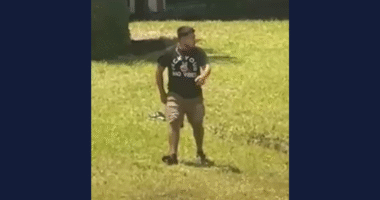
MyPillow CEO Mike Lindell was spotted checking his cellphone at the Covelli Centre before a Save America Rally featuring former President Donald Trump on September 17, 2022, in Youngstown, Ohio.
Attorneys representing Lindell found themselves in a predicament after using a generative artificial intelligence program to draft a court filing full of errors. This included references to several non-existent cases. In light of this mishap, they are now striving to postpone the trial date due to the court’s insistence on an explanation as to why they should not face repercussions for their inadequately prepared motion.
The incident involving the A.I.-generated submission occurred within the context of a high-profile defamation case. This lawsuit was initiated in Colorado by Eric Coomer, the former head of product security for Dominion Voting Systems. Coomer took legal action against Lindell following the dissemination of numerous false allegations directed at him and his former company subsequent to the 2020 presidential election.
Lindell’s attorney, Christopher Kachouroff, on Monday filed a motion for a continuance, saying the request was “necessitated by extraordinary and unforeseen circumstances,” and cited the Order to Show Cause from U.S. District Judge Nina Y. Wang, which requires Kachouroff to explain why he and his co-counsel, Jennifer DeMaster, should not be subject to discipline for the egregious error.
Wang last week accused Lindell’s counsel of authoring the filing through “blind reliance on generative artificial intelligence” and threatened them with the highest level of sanctions, including referral to their respective state bars for disciplinary proceedings. Responding to the court’s misconduct allegations has “threatened the foundation of a fair trial” and “rendered timely and adequate trial preparation impossible,” according to Kachouroff.
“The Show Cause Order is scathing. It has triggered national media coverage, subjecting defense counsel to reputational harm, emotional distress, and significant distractions from trial preparation,” Kachouroff wrote in the nine-page filing. “Counsel has expended a majority of last week investigating the circumstances of the erroneous filing and responding to the Order, diverting critical time from compliance with the trial preparation, now just five weeks before the trial date. The public nature of the Order also raises concerns about potential jury prejudice, while the threat of sanctions has impaired counsel’s ability to zealously represent Defendants. These extraordinary circumstances, combined with new pretrial obligations imposed post-conference, necessitate a continuance to ensure a fair trial.”
Kachouroff’s legal quagmire began with Wang accusing him of coming to an April 21 hearing unprepared. During that hearing, Wang questioned Kachouroff about a number of errors in an opposition motion he had signed and filed.
The judge said the defects in the filing included misquotes from cited cases, misrepresentations of “principles of law associated with cited cases,” which included discussions of legal principles that “simply do not appear” in the decisions, and “most egregiously,” citations to “cases that do not exist.”
While Kachouroff initially claimed that he simply “made a mistake” and accidentally “paraphrased” some cases, it wasn’t until Wang “directly” confronted him as to whether his filing was A.I.-generated that the attorney admitted it was.
The “pervasiveness of the errors” in Kachouroff’s filing were so glaring, that Wang said she was even skeptical of his claim that he had “personally outlined and wrote a draft of a brief utilizing the A.I. program.”
Kachouroff and DeMaster on Monday told the court that the errors in the submitted filing were determined to be the result of their inadvertently submitting a “draft” version of their work instead of the final copy. The duo allegedly worked on the draft over the phone because Kachouroff was out of the country, where internet access was “intermittent and interminably slow.” DeMaster said she accidentally submitted the wrong version of the filing, not the one with the corrected citations.
Wang ordered Lindell’s attorneys to submit via flash drive the metadata for all of the versions of the filing, including the one that had allegedly been corrected prior to the submission date.
Love true crime? Sign up for our newsletter, The Law&Crime Docket, to get the latest real-life crime stories delivered right to your inbox.











